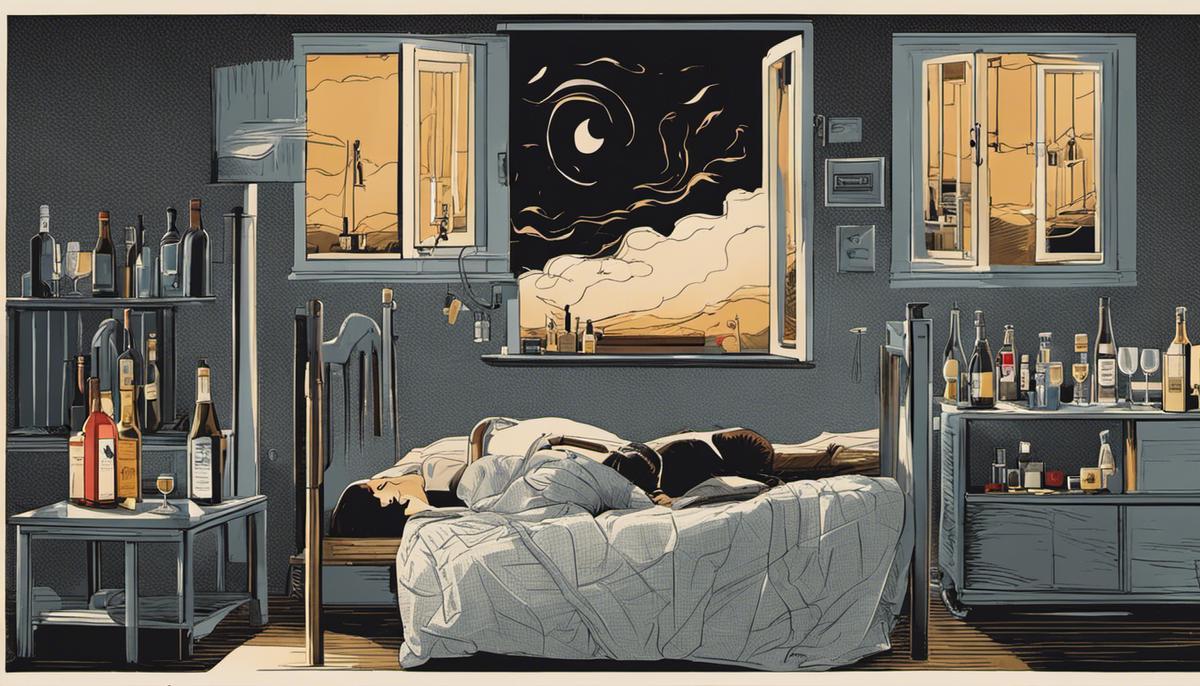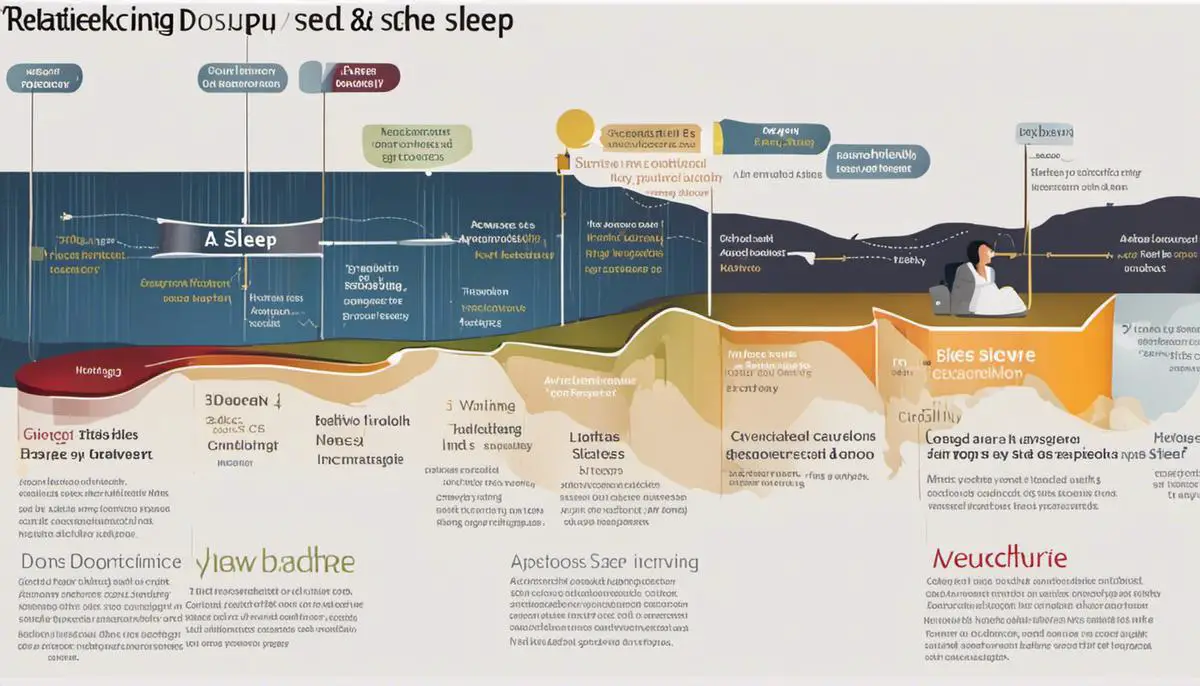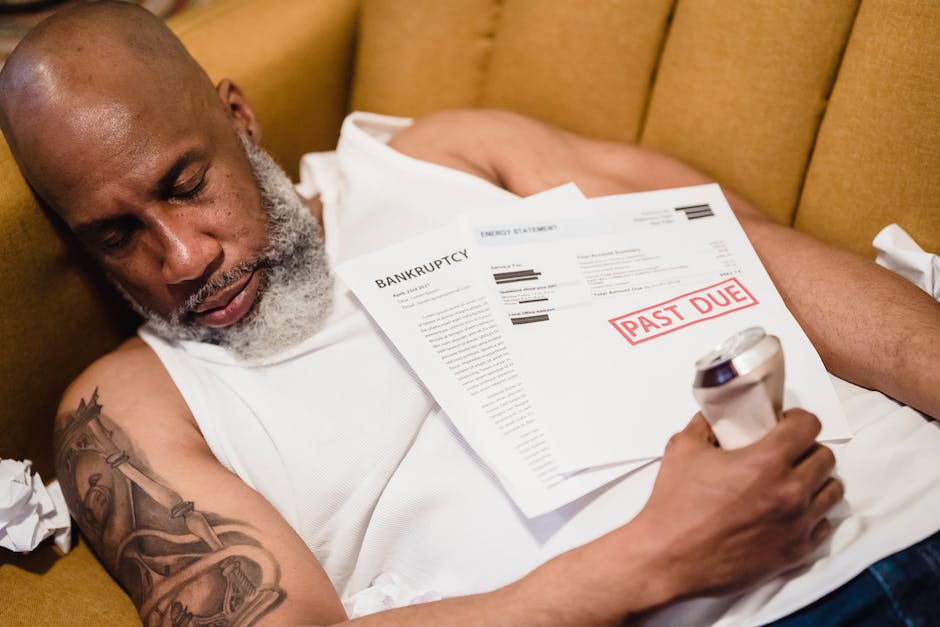Adopting healthy habits and taking care of our bodies is crucial to our overall well-being, with sleep hygiene playing a critical role in this equation. It’s imperative to understand our sleep cycles and how our actions or habits, particularly alcohol consumption, can disrupt them. This content takes an in-depth look at the association between alcohol and the quality of sleep. The evidence-backed scope of this overview delves into striking details about the sleep cycle, how alcohol affects sleep architecture, alcohol-related sleep disorders, and healthier alternatives to improve sleep.
Understanding Sleep Cycle
Understanding the Sleep Cycle
The sleep cycle is a repetitive pattern that your body goes through each night, consisting of various stages including light sleep, deep sleep, and REM (rapid eye movement) sleep. Each phase has its unique purpose and disruption of this cycle can have considerable health impacts.
Light sleep is the transition period between wakefulness and deeper sleep stages, occurring at the onset of the sleep cycle and intermittently throughout the night. This stage allows your body and mind to relax and prepare for deep sleep.
Deep sleep is crucial for bodily restoration and growth. It’s during this phase that the body rebuilds muscles and tissues, stimulates growth and development, boosts immune function, and energizes your body for the next day.
The REM stage, predominantly occurring in the second half of the night, plays a vital role in mental rejuvenation. It’s during this period that we dream and where most memory consolidation, learning, and emotional processing occur.
Crafting an equilibrium between these stages is critical for your overall health as each phase has a distinct role to play in your physical and mental well-being. Disrupting this balance often leads to feeling unrested upon waking and can have long-term health implications.
Understanding the Impact of Alcohol on the Sleep Cycle
Many individuals have misconceptions that alcohol can serve as a sleep aid, however, the opposite holds true. Alcohol can majorly disrupt the natural rhythm of your sleep cycle and can hinder the restorative processes initiated during sleep, leading to an array of short-term and long-term sleep disorders.
While the immediate effects of alcohol consumption might include inducing drowsiness and speeding up the process of falling asleep, the body’s metabolization of alcohol quickly interrupts the later stages of sleep. One specific consequence of this is a decrease in the duration of Rapid Eye Movement (REM) sleep, which can adversely impact sleep quality and leave individuals feeling lethargic upon awakening.
Chronic sleep disruptions like insomnia, sleep apnea, and parasomnias (unusual behaviours during sleep) become a likelihood with prolonged alcohol usage. There is also the risk of developing a tolerance to alcohol, meaning larger quantities are required to induce the same sleep effects, causing escalating disruptions to one’s sleep cycle.
Additionally, experiencing withdrawal symptoms from alcohol can severely affect sleep, often causing extended insomnia and an increase in REM sleep, which often result in disconcerting dreams. It is imperative to manage withdrawal symptoms under the vigilant care of a healthcare professional, ensuring a return to a normal sleep cycle.
In conclusion, the disruptive effects of alcohol on sleep are profound. Despite the temporary benefits, it eventually leads to various sleep disorders and potential health hazards. Adopting good sleep hygiene and moderating alcohol consumption are essential for maintaining a healthy sleep cycle. Seeking consultation from a healthcare provider is advised if one is experiencing sleep disturbances or undergoing alcohol withdrawal.

Alcohol and Sleep Architecture
Unraveling the Connections between Alcohol and Sleep Architecture
The connection between alcohol and sleep architecture is key to understanding how substance use can impair restorative sleep patterns. ‘Sleep architecture’ refers to the structured progression of different sleep stages throughout the night. These stages transition from light sleep, to deep sleep, and, finally, to REM sleep. Each of these stages plays a vital role in mental and physical recovery, and disruptions caused by factors like alcohol can significantly throw off this delicate balance.
Alcohol’s Impact on Sleep Cycles
Studies have shown that alcohol can severely disrupt an individual’s standard sleep architecture. After ingesting alcohol, individuals initially experience sedative effects which can help to induce sleep. However, as the body metabolizes alcohol and its relaxing effects wear off, a rebound effect can occur. This often results in lighter, fragmented sleep during the latter half of the night and consequent daytime fatigue.
Both moderate and heavy alcohol consumption can lead to considerable changes in sleep patterns. Moderate drinkers may experience short-term insomnia, sleep disruptions, and decreased slow-wave sleep (SWS, the deep and restful sleep stage). This can leave them feeling unrested and fatigued the next day.
Alcohol-Related Sleep Disorders
Heavy, prolonged alcohol use can lead to the development of alcohol-induced sleep disorders. The most common among these disorders is insomnia, characterized by difficulty falling asleep, staying asleep, or experiencing restful sleep. This can lead to significant daytime impairment.
Another common alcohol-related sleep disorder is sleep apnea, a condition characterized by repeated episodes of stopping and starting breathing during sleep. Alcohol use can exacerbate sleep apnea by relaxing the muscles in the airway and combining the effects of sleep deprivation caused by the disorder itself.
Adverse Effects on REM sleep
Excessive alcohol consumption can also limit the time spent in REM sleep, an essential stage for memory consolidation and emotional regulation. Reduced REM sleep can contribute to poor concentration, motor skills, and mood regulation the following day.
Alcohol Withdrawal and Sleep
Of note is the relationship between sleep disorders and alcohol withdrawal. Chronic heavy drinkers often experience alcohol withdrawal insomnia during periods of abstinence. The body, accustomed to the sedative effects of alcohol, struggles to re-establish normal sleep patterns leading to prolonged periods of insomnia, a factor that can contribute to relapse among those trying to quit drinking.
Research Outlook
Several studies are investigating how to help those with alcohol-induced sleep disorders better manage or overcome their condition. Given the significant role of good sleep in overall health and recovery from substance abuse, such research is crucial in developing effective treatments and interventions.
Understanding Alcohol-Induced Sleep Disruptions
Alcohol can potentially play a detrimental role in disrupting sleep architecture, leading to an array of sleep disorders and an overall decrease in sleep quality. Grasping the complexity of this relationship is vital for effectively addressing the adverse impacts of alcohol on sleep.

Alcohol as a Sleep Aid: Debunking the Myth
The Misconception of Alcohol as a Sleep Aid
A widespread assumption exists that alcohol facilitates sleep. However, this belief contradicts various scientific findings which illustrate that alcohol more often than not detracts from the quality of sleep. While some individuals might feel that a glass of wine or a late-night drink aids them in falling asleep, such effects are fleeting and consequently deteriorate the quality of their sleep as the night progresses.
Alcohol’s Immediate Impact on Sleep
Alcohol may help some individuals fall asleep faster, a positive immediate effect that can mislead people into thinking alcohol is helpful for sleep. However, this is typically where the benefits end. As a depressant, alcohol may induce heavy sleep in the early part of the night but it often disrupts sleep in the second half of the night – a stage when REM or rapid eye movement sleep, essential for memory and learning, occurs.
Detrimental Long-term Effects on Sleep Patterns
Regular consumption of alcohol before bedtime can lead to more profound sleep issues over time. It can mess with the sleep-wake cycle, potentially causing insomnia and other sleep disorders. Over time, the body may become reliant on alcohol to fall asleep, increasing the risk of dependency and addiction.
Alcohol can also exacerbate breathing-related sleep issues, such as sleep apnea and snoring. It relaxes the muscles in the throat which can increase periods of breathing cessation during sleep, posing serious health risks.
Alcohol’s Impact on Sleep Quality
Alcohol affects the overall quality of sleep by reducing REM sleep, diminishing its restorative effects. This often leads to daytime fatigue, impaired concentration, and mood disturbances. Many people who use alcohol to assist sleep also report waking up frequently in the night and having poor-quality sleep overall.
While it’s tempting to use alcohol as a sleep aid due to its apparent sleep-inducing effects, the reality is far from beneficial. In truth, alcohol tends to disrupt the quality and structure of sleep, making sleep problems worse instead of alleviating them. For better sleep, it’s best to stick to good sleep hygiene practices, effectively manage stress, and seek professional medical aid if required.

Alcohol-Related Sleep Disorders
The Unhealthy Link between Alcohol and Sleep Disorders
Drinking alcohol, especially in large amounts, has been linked to the onset and exacerbation of numerous sleep disorders. At a glance, alcohol might seem helpful for sleep because of its sedative effects that could aid in falling asleep initially. But this supposed benefit is fleeting. Over time, regular alcohol consumption tends to disrupt sleep patterns, leading to a variety of sleep disorders or even worsening existing ones.
Insomnia and Alcohol
Insomnia, characterized by difficulties in falling asleep, maintaining sleep, or waking up too early, can be exacerbated by alcohol consumption. Alcohol disrupts the natural sleep cycle, suppressing Rapid Eye Movement (REM) sleep, which is essential for a restful and rejuvenating sleep experience. As alcohol is metabolized through the night, individuals often experience fragmented sleep, frequent awakenings, and a reduction in overall sleep quality.
Alcohol and Sleep Apnea
Sleep apnea, a disorder in which breathing repeatedly stops and starts during sleep, can also be aggravated by alcohol consumption. Alcohol acts as a muscle relaxant that may cause collapse of the upper airway and can lead to periods of reduced or completely stopped airflow (apneas). Moreover, alcohol may create instability in the brain control mechanisms that manage breathing, thus posing increased risks for those susceptible to sleep apnea.
Night Terrors and Alcohol
Night terrors, characterized by feelings of terror or dread, can be influenced by alcohol use. Although not directly linked to alcoholism, studies have suggested that heavy drinkers are more likely to experience vivid and often terrifying nightmares as a part of alcohol withdrawal. These could result from the fragmented REM sleep that alcohol induces.
Parasomnia and Alcohol
Parasomnia, a sleep disorder associated with strange behaviors during sleep such as sleepwalking or night terrors, can be exacerbated by alcohol. Alcohol interferes with the normal transition between different stages of sleep, increasing the possibility of partial awakenings that pave the way for parasomnias. Also, Alcohol withdrawal results in heightened nervous system activity which can drive increased episodes of parasomnia.
Managing Alcohol-Related Sleep Disorders
Alcohol-related sleep disorders are a serious concern and often require multifaceted management including medical, behavioral, and psychological interventions. Cognitive-behavioral therapy (CBT) is commonly used in managing insomnia, focusing on improving sleep habits and behaviors. Weight loss and positional therapies are recommended for sleep apnea sufferers. Night terrors and parasomnia may benefit from similar treatments along with medications to manage symptoms. In all cases, individuals experiencing any of these alcohol-related sleep disorders should seek professional medical advice for an accurate diagnosis and appropriate treatment plan.
Understanding and Addressing Risks
Reducing or halting alcohol intake is the crucial first step in minimizing the risk of sleep disorders associated with alcohol use. Adopting a healthy lifestyle – encompassing regular exercise, a nutritious diet, consistently good sleep hygiene, and effective stress management – further enhances this risk reduction. For those grappling with alcohol dependence, professional guidance such as counseling and participation in support groups can be incredibly beneficial.

Healthy Alternatives to Improve Sleep
Individuals who have a history of heavy and prolonged alcohol consumption often experience sleep disorders related to their alcohol use. While the sedative properties of alcohol may mislead people into using it as a sleep aid, it actually interferes with the regular sleep cycle by preventing the body from achieving deep and replenishing sleep. Consequently, this disturbance results in feelings of persistent tiredness and fatigue, resulting in a slew of health concerns and declines in everyday performance, even when the individual appears to have had a full night’s sleep.
Dietary changes
Nutrition plays a key role in sleep quality. Consuming foods rich in magnesium, like nuts and seeds, can improve sleep quality. Tryptophan, found in turkey, nuts, seeds, and cheese, is also beneficial as it aids in the production of melatonin – a sleep-inducing hormone. Limiting caffeine intake, especially in the hours leading up to bedtime, can also help as caffeine is a powerful stimulant which can interfere with sleep onset.
Exercise regimen
Regular physical activity can also increase the duration and quality of sleep by boosting the production of serotonin in the brain and decreasing levels of cortisol, the body’s main stress hormone. Exercise can include anything from a brisk walk to a vigorous workout; however, it is recommended to avoid intense exercise close to bedtime as it may leave you feeling energized, making it difficult to fall asleep.
Bedtime routines
Establishing a consistent sleep schedule can train your body to follow a regular sleep-wake cycle, which can lead to improved sleep over time. This routine includes going to bed and waking up at the same time each day, even on weekends. Additionally, creating a restful environment, free from light and noise, can better facilitate sleep.
Stress management
High stress levels can interfere with quality sleep. Techniques to manage stress, such as yoga, meditation, and deep-breathing exercises, can have a positive impact on sleep quality. Furthermore, cognitive behavioral therapy (CBT) can address the thoughts, feelings and behaviors that are preventing a good night’s sleep, making it particularly effective for tackling insomnia.
Mental health and sleep
The connection between sleep and mental health is well established, with sleep disturbances being a common symptom of many mental health issues. Therefore, seeking treatment for any underlying mental health conditions, such as anxiety or depression, can significantly improve sleep quality. Mental health care may involve psychotherapy, medication, or both, depending on the nature and severity of the condition.

After a thorough examination of the topic, it is evident that the potential damage alcohol can inflict on our sleep is substantial and far-reaching. The complexities of sleep disorders linked to alcohol consumption underscore the importance of seeking healthier alternatives to enhance sleep. While refraining from alcohol may not be an immediate panacea for sleep disorders, understanding its impact and taking decisive steps toward better lifestyle habits can aid in improving sleep quality. Hopefully, the insights provided offer not only education but also guidance towards establishing improved sleep hygiene and, by extension, a better quality of life.
